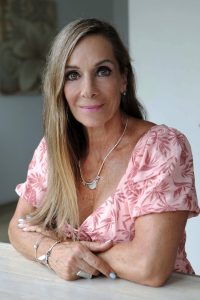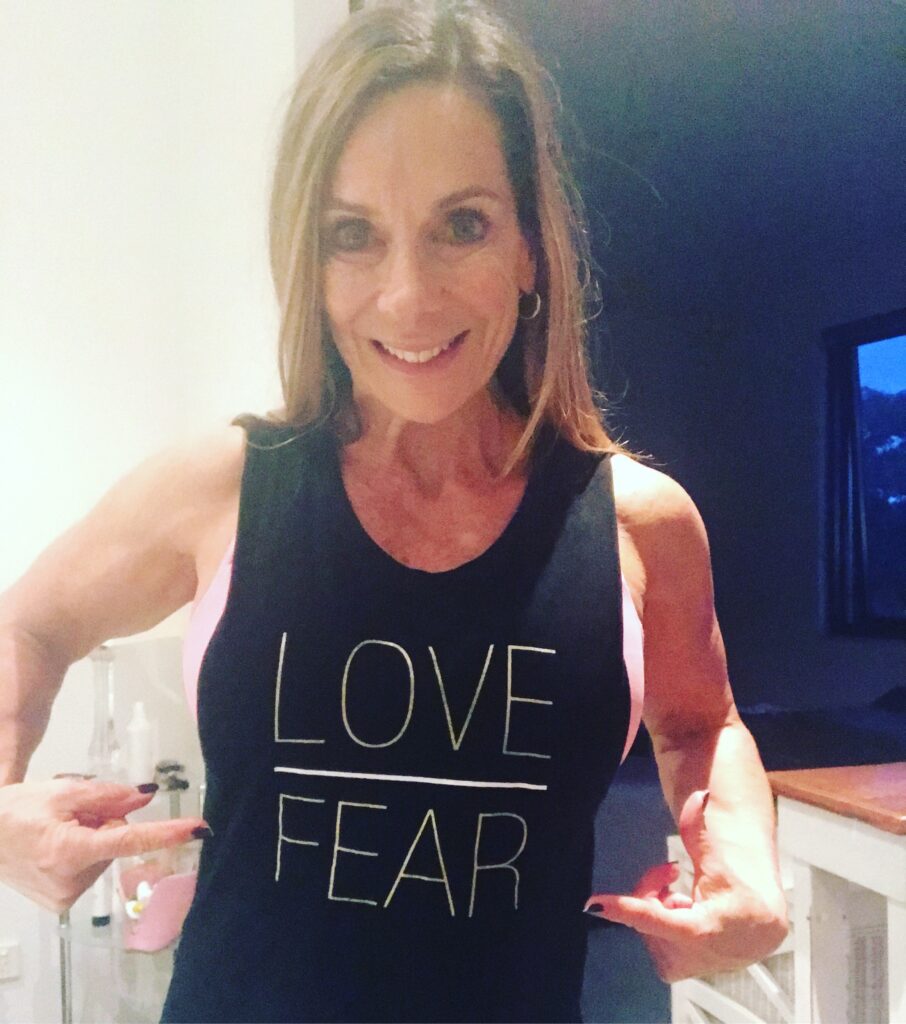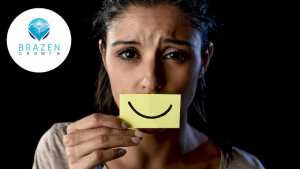I don’t like the term ‘burden of disease’. For anyone who has or has experienced a physical and/or mental illness, feeling like a ‘burden’ is what the sufferer often thinks of themselves. I’d like to call for a change of this term.
Can we also stop calling eating disorders ‘body image’ issues. What happens to the body is just a sign and symptom of something much deeper. By referring them as such, seems to add another barrier to seeking help. How can someone possibly explain what they are really feeling and experiencing when these illnesses are represented as ‘body image’ issues. This is where the myth of these illnesses being about vanity comes from. PLEASE STOP. We are not just bodies. We have much focus on bodies in our insta snap world and so by using this term we are not helping the sufferers.
I would also wish that organisations or individuals to never to refer to them as ‘my’, ‘their’, ‘his’ or ‘her’ eating disorder. You see, to me this suggests ownership. I NEVER WISH FOR ANYONE TO OWN THESE ILLNESSES or any others for that matter.
Research shows that over 50% of people that develop an eating disorder DO NOT experience body dissatisfaction. Even for those that do, by referring to these illnesses as body image issues stops at the surface level. Allow me to explain using my experience.
NEED TO BE HEARD and FEEL VALIDATED
I was never dissatisfied with my body before developing anorexia in my late teens, or when I found myself using the unhealthy behaviours when I was struggling in the last years of my 21 year marriage, as a woman in her 40’s.
Undiagnosed depression and anxiety was what I was trying to manage. These came about due to many factors, including the way that I interpreted my world. Not being allowed to speak up and having a very strict upbringing made me believe that my thoughts, feelings and aspirations did not matter. I internalised this as “I do not matter and I am not valued.”
People pleasing, fearing to ‘rock the boat’ and saying yes to chores and making sure everyone was happy made me feel that was the only way to be validated and loved.
A change of appetite and sleeping patterns are just a couple of signs of depression, anxiety and other mental illnesses. My appetite decreased. I did not intentionally start to diet. I was usually never asked about my feelings, but this change in eating habits caused my parents to ask what was wrong. I did not know how to express what was wrong as I was not given opportunities to do so without fearing the other person’s reaction. But now I felt they were listening to what they were observing.
My thoughts initially were that this was what made me worth being listened to. And so the slippery slope of full blown anorexia. The fear of losing this ‘new found worth’, multiplied.
RULED BY FEAR
Fear, guilt and shame drive unhealthy coping mechanisms. For an eating disorder, the real, deeper fears are not of food or body weight – they are fears that develop, but they grow from the fears that are not visible.
The fear of eating in front of others – I felt that if others saw me eating then I had failed as I believed I was only worthy if I was not eating.
The fear of not running in order to burn calories – I was listened to and worthy of love if I kept these behaviours up.
But the biggest fear was losing my parents ‘attention’ which I interpreted as ‘love’ at that time.
It was not a fear of food but a fear losing what I thought I had found. At that time, if anyone talked to me about my restricted eating and excessive exercise I froze thinking “don’t you dare take this away from me.” I did not know any other way to feel worthy. The depression and anxiety of those years was dark. The torment of not wanting to live like that but being scared to let those behaviours go was an hour by hour battle.
I lost who I was trying to become. I lost my identity to this horrid illness. And the underlying thoughts remained even after my body weight restored.
These were:
· you are not loved,
· you are not worth of being listened to,
· you are only valuable when you please others
· you need to try to be valued.
Try to be the perfect wife, the perfect mother. Keep trying.
For a while I thought I had found me again, when my children were less dependent on me and were all at school. My circumstances resurfaced those underlying thoughts, and once again I feared the reactions of my husband. I did not know how to express what I was feeling and felt I had no right to. I felt that I was not loved for who I was. It was an eight year downhill slide. I did not recognise that I had depression. What I did recognise was that I only knew one way to cope, and the unhealthy habits reared their head. I was NOT unhappy with my body. I was trying to cope, but I did not want to go back there or teach my children those unhealthy coping mechanisms. I had a breakdown in my doctors surgery and was diagnosed with depression.
It was the same stinking thinking – that I was not worth being loved.

THE HIDDEN COSTS
There are many losses when it comes to illness, both physical and mental illnesses. Both can result in the loss of life. The losses that we may not often give much attention to can have long devastating effects. These loses impact on each other. Undiagnosed depression and anxiety, which ultimately led to the eating disorder in my early years cost me the following:
My youth
I was always worried about doing enough chores to be a ‘good enough daughter’. I could not just be. I felt I had to prove that I was worth being loved. This meant not speaking about how I felt as I did not want to displease. The anorexia imprisoned me further than the strictness of the rules of my upbringing; the most basic teenage desire of wanting to socialise with friends backfired as I not only gave up asking for permission, I did not want to in case food was involved. I thought to eat in front of people meant I had failed.
My Identity
When the all-consuming behaviours of an eating disorder become a form of controlling emotions and circumstances you feel you can’t control, these not only become your ‘security blanket’ to make you feel ‘safe’ but they become something you believe defines you. Although the effects of these behaviours are devastating on health, the sufferer sees them as their strength and without these they feel lost. All other dreams and aspirations paled into insignificance and the clutches of these thought and behaviour patterns. I lost my sense of self and had low self-esteem but I was an anorexic and to take that away meant I did not know who I was.
Freedom to choose
The unhealthy behaviours and the associated obsession with food and exercise cost me the freedom to eat things I liked and to rest. Yes, I wanted to eat the foods that I had grown up loving, that once had no attachment to emotions, It was a daily battle of the mind, meal by meal. Stick to what gave me a ‘sense of control’ over emotions. The exhaustion of running kilometres per day on little intake was debilitating, not only physically but mentally as I believed that I had no choice but to keep going – again, as I would feel like I had lost the identity the illness had made me feel I had as well as feeling I had failed if I dared to think I could rest.
My health
My mental, physical and social health suffered. The attempt to control what I did not understand to be depression and anxiety at the time, with unhealthy habits resulted in worsening of mental health. I now suffered with depression, increased anxiety and an eating disorder.
I lost my menstrual cycle completely for 5 years. Apart from the concerns of infertility, this had the effect of decreasing bone density, causing gastro intestinal problems, insomnia, effected skin and hair quality as well as developing a fine layer of body hair all over my body.
My social life did not exist. I did not know how to relate to people any more as I feared they would challenge the unhealthy behaviours which I was protecting. I was ruled by feelings of guilt and shame and this included the guilt of stopping the unhealthy behaviours. The isolation had a further negative impact on my mental health.
Relationships
The relationship with my parents and siblings became strained as they struggled to deal with an illness that was all consuming and disrupted much of our family life. The relationship with myself, of who I thought I was as a little girl was damaged. Isolation from extended family and the ability or desire to even talk to friends caused loss of friendships as well as a boyfriend. Not understanding the illness myself at the time, I could not expect others around me to understand it.
Joy
There is NO joy at all in an eating disorder, or any other illness of the mind. Eating disorders are NOT lifestyle choices. They take over your whole being in a web of lies. There is NO joy in constantly living in fear and anxiety that you are not enough. There is NO joy in feeling guilt and shame over the necessity to eat. There is NO joy in broken relationships. There is NO joy in thinking you are a failure and becoming exhausted as you continue to engage in behaviours that lie so that you believe that will make you feel better. This never comes. There is NO joy in believing you are worthless.
This list of costs is not exhaustive and can come in varying degrees for different people who suffer with eating disorders. The financial costs of treatment are on top of these costs. However, if we only look at the signs and symptoms and NOT try to understand the ‘why’, we will not break free of the thoughts that lead to the unhealthy coping mechanisms. I found this out in an extremely difficult way some 24 years after I physically recovered. Again, I loved my body but I did not love who I was. The costs at this time multiplied yet they had the same cause – I did not feel valued or that I was enough. Yet this time I found true healing and recovery in circumstances that had the potential to ultimately lose my life to.
Part 2 coming .. Priceless recovery found in the midst of loss



